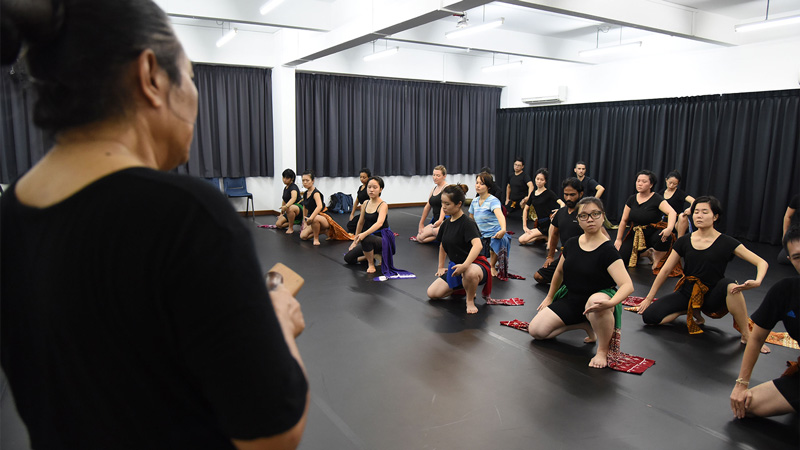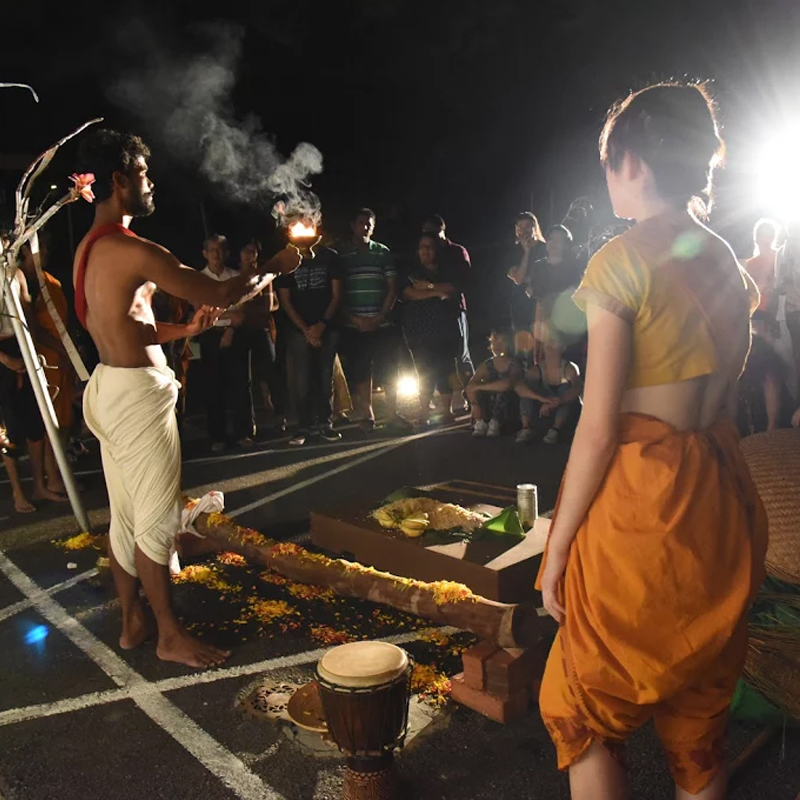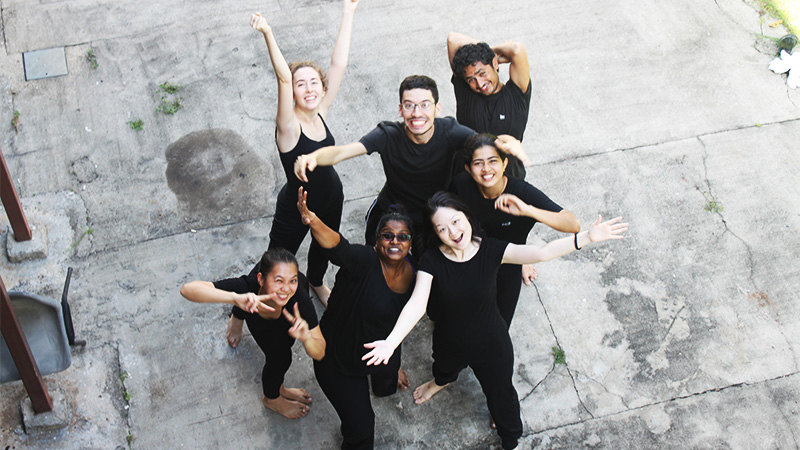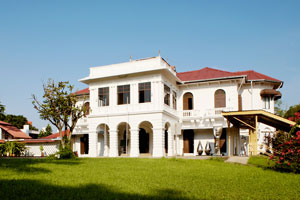The ITI Acting Programme
The ITI Acting Programme is a distinctive actor training programme. It is a three-year, full-time, systematic training programme for professional actors interested in working in contemporary theatre.
The intensive programme is grounded in an intercultural learning methodology, set to rigorous standards, to develop skills in performance and original theatre-making.
Conceived in 2000 by renowned dramatist, the late Kuo Pao Kun, and current ITI director, T. Sasitharan, it is inspired and informed by the founders’ knowledge and experience in Asian theatre and the result of consultations with an international panel of esteemed theatre-makers.
Professional Diploma in Intercultural Theatre (Acting)
The Acting Programme is a performer-centred, practice-oriented training with a focus on intercultural work and original creation.
Students are immersed in traditional theatre forms from Asia (such as Kutiyattam Theatre from India, Jingju/Kunqu from China, Noh Theatre from Japan and Wayang Wong from Indonesia) and contemporary techniques in actor training (such as Stanislavskian and post-Stanislavskian lessons). The programme is set up as a series of dialogues — between Cultures, Languages and Forms, and between Craft and Theory, the Contemporary and the Classical, the Technical and the Imaginative, and Structure and Spontaneity.
The programme trains professional actors and performers who can work in a range of contemporary theatre genres and forms (see our Alumni achievements).
On completion of the professional diploma programme, the ITI actor is expected to be skilled in stagecraft and adept at the techniques of theatre, is knowledgeable about theatre, is able to maintain a personal practice, is critically aware and socially engaged, and is capable of working autonomously as a creative person or artist.
Programme Structure
The academic year begins in January and ends in December. It is divided into two semesters, with a vacation break in June and December and a one-week recess between the two terms in each semester.
The three-year, full-time Acting Programme commences on the first working day of each calendar year.

In Years 1 and 2, the terms consist of nine to ten Training and Teaching Weeks and one Presentation and Assessment & Evaluation Week. Immersions in Theatre Traditions are taught for one term per form.
In Year 3, the cohort works as a theatre company, and training or studies undertaken will be subject to rehearsal and performance requisites of the selected productions. Students are required to create, rehearse, develop, devise, workshop or train with a view to presenting the production to a paying, public audience in Singapore. Each cohort will present two or three public productions.
Students must attend all classes. There are no elective modules.
For more details of the modules, please refer to the Prospectus.
Assessment and Evaluation
Students will be assessed and evaluated by the Director and the Faculty (including visiting directors).
This may be done in two ways:
(1) continual evaluations of studio and class work; and
(2) assessments of semester-end presentations or performances.
Some modules adopt one mode of assessment and evaluation or the other. Others adopt a proportion of both.
Students receive a verbal and written report on their performance, and a grade of ‘Pass with Distinction’, ‘Pass’ or ‘Fail’, for the relevant modules at the end of each semester, and at the end of each final-year production. The Examination Board will give their endorsement of the Director’s recommendation on the students’ suitability to be awarded the Professional Diploma.
Upon graduation, students will receive the Professional Diploma of Intercultural Theatre (Acting) as well as a record of their training throughout the programme.
They must meet the following criteria:
- Pass all the modules in Year 1 and Year 2
- Complete all Final-Year Public Performances and pass the assessments
- Complete the Final-Year Theatremaking Project
An appeal process is available to students who wish to appeal any assessment result.
Details of the assessment approach and appeal process are found in the Student Handbook.








